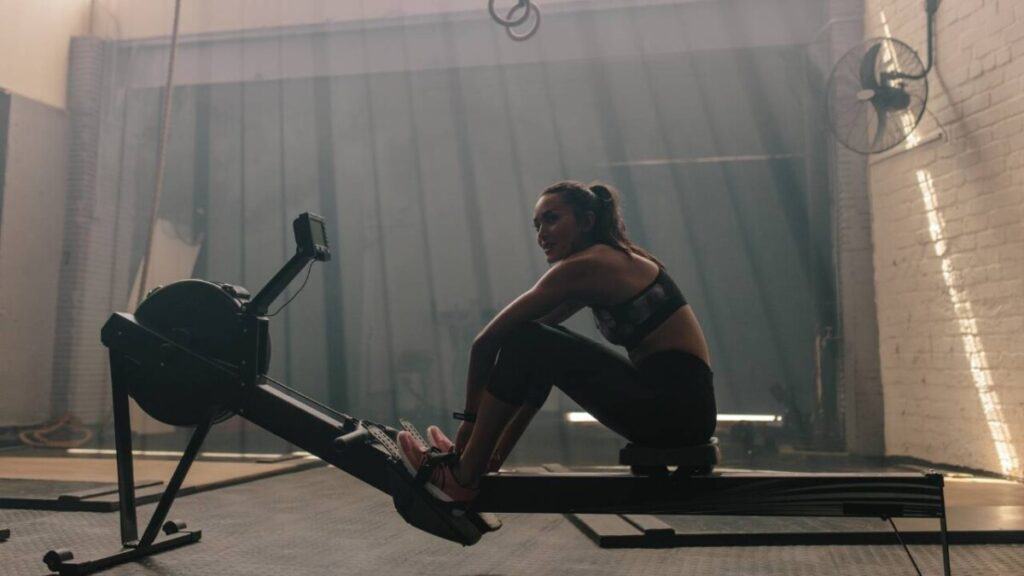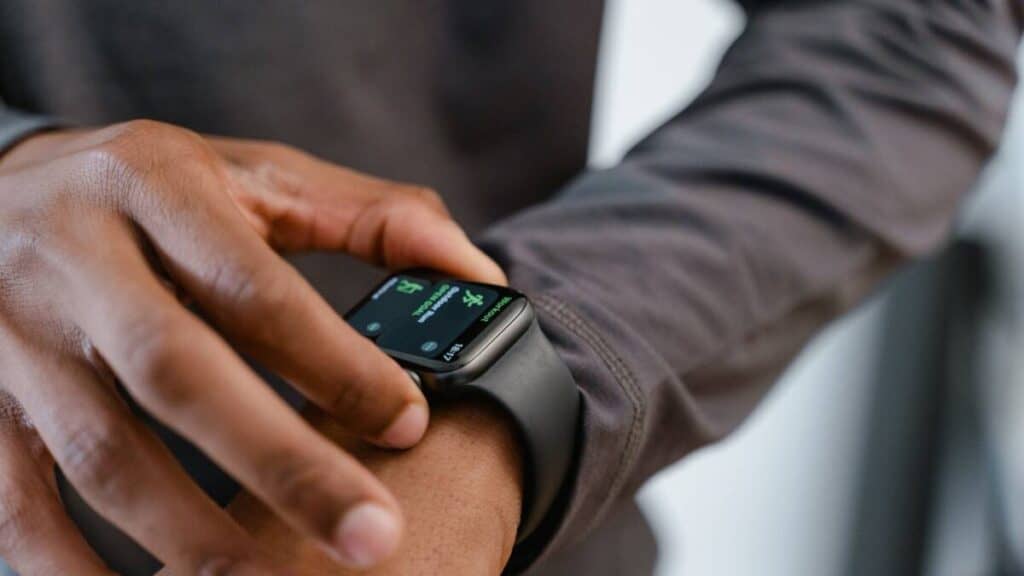Rowing is a great workout for your whole body. It is a low-impact workout that can help you burn a lot of calories. So how many calories does rowing 2000m burn? And is it enough to lose a significant amount of weight and burn stubborn fat around your belly, bum, and legs?
On average you burn between 80 and 120 calories rowing 2000m but this can increase or decrease depending on your intensity level, current body weight, and rowing technique. You can increase the number of calories you burn by 5% if you increase the intensity.
Table of Contents
How Many Calories do you Burn Rowing 2000m

The number of calories that you can burn while rowing 2000m distance can vary. It will all be dependent on your gender, weight, fitness level, and the equipment that you are using. The intensity of your rowing and the amount of time you spend rowing have the biggest impact on calorie consumption. However, on average, you can expect to burn between 80 and 120 calories by rowing 2000m.
Rowing is a great way to get your heart rate up and tone your muscles. It is also low impact, so it is easy on your joints. Rowing can help you burn a lot of calories in a short amount of time because it used nearly every muscle in your body. This increases the amount of oxygen your body needs resulting in higher energy output.
If you want to burn even more calories, try rowing at a higher intensity or for a longer period of time. You can also try adding some strength training exercises to your routine. Strength training will help you build muscle, which will help you burn more calories even when you are at rest.
How Many Calories Does Rowing 2000m Burn Table
| Weight | Rowing 2000m Moderate | Rowing 2000m Vigorous |
| 110 | 40 calories | 52 calories |
| 120 | 44 calories | 56 calories |
| 140 | 52 calories | 66 calories |
| 150 | 56 calories | 70 calories |
| 160 | 60 calories | 76 calories |
| 170 | 64 calories | 80 calories |
| 180 | 68 calories | 84 calories |
| 190 | 72 calories | 90 calories |
| 200 | 76 calories | 94 calories |
| 220 | 82 calories | 104 calories |
| 240 | 90 calories | 114 calories |
💡Struggling with stubborn weight that won’t budge? Tired of yo-yo diets and empty promises? Say goodbye to past failures and hello to guaranteed success with our fail-proof, personalised calorie plans! Uncover scientifically-backed strategies that make weight loss effortless, helping you shed up to 24 pounds in just 12 weeks. This isn’t a fad; it’s a lifestyle transformation. Don’t miss out—your journey to a slimmer, more confident you is just one click away!
Other Rowing Distances You Might Want to Learn About

Average Time to Row 2000m?
The average time to row 2000m will be dependent on whether you are a male or a female. An intermediate rower can expect to row 2000m between 7 and 10-minutes. Beginners can probably bump this up to between 10 and 13 minutes.
On average, a male will take around 7 minutes to row 2000 meters. This time can be lower or higher depending on the individual’s level of fitness, weight, and age. Regular rowing will help improve your time because your body will become more efficient at the movement.
A female will take around 8:30 to row 2000 meters. This time can be lower or higher depending on the individual’s level of fitness, weight, and age. Regular rowing will help improve your time because your body will become more efficient at the movement.

Can You Lose Weight Rowing 2000m a Day?
To lose 1 pound of body weight each week you need to burn around 3500 calories. This can be done through exercise and/or diet. Rowing 2000m daily will only burn around 120 calories meaning you would need to row 2000m 29 times to burn 1 pound of fat.
A better option would be to combine rowing 2000m with other exercises and activities throughout the day. You could also try changing up your diet to include more healthy foods and fewer calorie-dense foods. If you create a calorie deficit of around 500 calories a day you can lose 1 pound each week.
Therefore, you might need to increase your rowing distance to 5000m or use other forms of cardio like running, swimming, or cycling to create that calorie deficit. A health goal is to eat 250 fewer than your basal metabolic rate and burn 250 calories through exercise like rowing.
If you can maintain this routine for 12 weeks you will lose 12 pounds of body fat without putting your body into stress and fatigue. If you want to lose more weight than 1 pound a week you need to increase your exercise output and reduce your calorie intake. This can be challenging the more you push your body.

2000m Row Vs 2km Run What Better?
A 2000m row will burn around 100 calories vs 140 calories for a 2km run so for calorie consumption running is better. However, it will take around 7 minutes to row 2000m but the average time to run 2km is 12 minutes. Therefore it will take twice as long to run 2km than in a 2km row.
Therefore, if you row for 12 minutes or 4000m then you would burn 200 calories making rowing the better choice for weight loss. These numbers can increase significantly if you raise the intensity level. To maximise weight loss and weight strength I recommend using both rowing and running as a method of weight loss.
To keep motivation high and make weight loss a long-term goal I would run one day and row the next. This keeps your body guessing and stops your body from adapting to one form of exercise. As we know, if our bodies adapt to exercise then the calorie-burning effects will decrease.
It is also important to listen to your body. If you are injured or in pain then it is time to stop and rest. Pushing through the pain will only make the injury worse and set you back in your weight-loss goals.
Calories burned rowing 2000m Summary
Rowing is a great way to get your heart rate up and to burn some calories. On average, you can expect to burn between 80 and 120 calories by rowing 2000m. If you want to burn even more calories, try rowing at a higher intensity or for a longer period of time. Rowing will help you lose weight and reduce belly fat if you row consistently and create a calorie deficit.
Try combining rowing with other exercises and activities to create a well-rounded workout routine. And most importantly, listen to your body and rest when you need to. Happy rowing!



